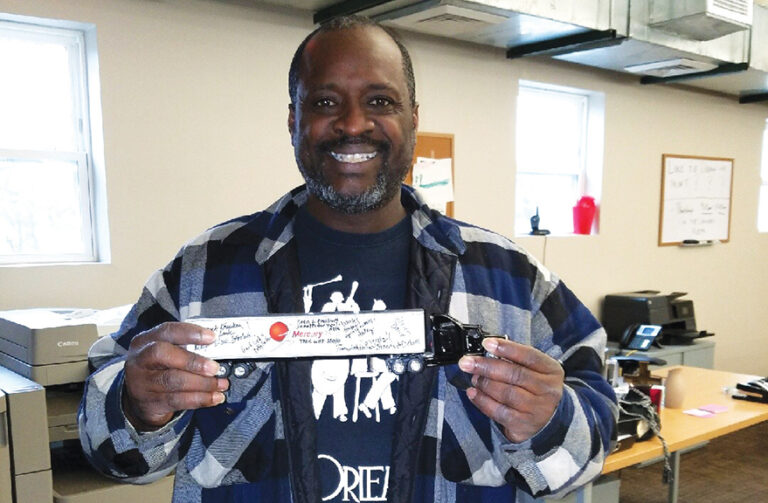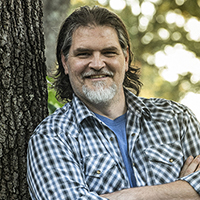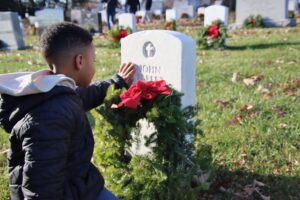There was a time when a career as an over-the-road truck driver was a pipe dream for Derrick Clark. Not long ago, the Little Rock, Arkansas, native was merely surviving a dark period in life where all he could think about was finding a sheltered spot on the street to curl up in before finding his next high.
“When I became homeless, things became very hopeless for me. I was out there for a while,” he said. “It is really hard for someone who has been homeless to pull up from their situation because of what they have to deal with. When you make a mistake, everybody wants to focus on your mistake.
“I had to get to the point where I would tell people, ‘Thank you for thinking about my failures and my mistakes for me, so I don’t have to think about them. Y’all got that part for me; all I got to think about is a solution,’” he said.
Clark’s period of homelessness in adulthood was the culmination of a life lived according to the law of the street. Mimicking the examples of the hustlers and criminals that were his earliest role models, his life as a petty criminal began at age 12.
“I’m a projects baby. My value system wasn’t that good because I wasn’t taught not to steal; I was taught not to get caught,” said Clark, now 51. “When I did get caught, I got in some serious trouble that could have put me in the juvenile home. That’s when I moved to my Uncle Mike’s, who taught me some values. I didn’t understand them at the time, but he gave me my work values.”
Michael Flowers, Clark’s late uncle, lived in the country, and he put his troubled nephew to work outside. And while the experience didn’t fully take root at the time, it planted a seed of hard work and perseverance that would come to flower later in Clark’s life.
“Plato, I think, says that every person wants to be good. I believe that,” Clark said. “Inside of all of us is the inner child that wants to be good, and sometimes that inner child is corrupted by environmental factors, like I did. But it’s always hope for that inner child to come out and blossom like he or she should blossom. The thing is, they need an opportunity.”
Clark’s opportunity came in the form of Jericho Way, a Little Rock day center for the homeless. There, he found people who cared about him and genuinely wanted to help him move past his current circumstances.
“The first good decision I made to turn my life around was hanging out at Jericho Way,” he said. “People started coming into my life and having a belief in me that I could do more than what I was seeing. Then I start believing in myself.”
During this time, Little Rock city leaders were seeking input from the homeless community about life on the streets and how to address it. Clark was one who stepped up to give a firsthand account of being homeless in Arkansas’ capital city.
“That experience was awesome because I got to see how other people think and how other people process getting something done,” he said. “It was also terrible, because in my homeless crowd I got ridiculed so bad that some days I just didn’t want to do that no more. I caught a lot of conflict on the street, even name-calling like Uncle Tom, Uncle Remus, Uncle Rufus.”
Clark may have been taking on the street flak for his participation, but he was also impressing people at Little Rock City Hall, among them City Director Kathy Webb and City Manager Bruce Moore.
“Derrick was very valuable,” Moore said. “When you get that input firsthand, it truly makes a difference. It’s eye-opening; sometimes it can make you feel really inadequate in how we’re dealing with the homeless population.”
With the encouragement of Webb, Moore and the staff at Jericho Way, Clark continued his slow march toward self-subsistence. The pace was frustrating, and he was stuck in short-term minimum-wage jobs — until one Christmastime gig turned things around.
“The Salvation Army gave me a job ringing bells,” Clark said. “I was ringing the bell, and God told me if I didn’t take any of these people’s money — not saying that I would have, but a lot of other people were taking the money — that he would bless me with work.
“Right after that holiday season was over, Arkansas Workforce came to Jericho Way, and God opened all the doors for me to get over every obstacle to become a truck driver,” he continued.
In 2017, Clark began driving for New Age Distributing, a local 7-UP distributorship. He was making progress but wasn’t entirely out of his old mindset, and bad habits caught up to him. Seeking a change of scenery, he moved to Houston, where he had difficulty getting started. He was living in a homeless shelter, praying for an opportunity, when he dialed a wrong number. That wrong number reached a trucking company — that offered Clark a job.
Since then, Clark has completed rehab and works to continue his progress. He began driving steadily, earning enough to support himself without government assistance. It was a happy ending, but not wholly satisfactory until he called Kathy Webb back in Arkansas with the idea of starting a scholarship fund that would help another person attend trucking school.
“I mean, it was like planting a seed and a tree came up out of it,” he said. “All I wanted to do was give $1,000 to pay the down payment for someone to go to Pine Bluff (Arkansas) Trucking School, and let them pay the rest.”
Clark put up the money to launch the project, and with the help of his old allies the fund was quickly placed with the Arkansas Community Foundation. Through that group, the J.C. Thompson Trust agreed to match every dollar donated, up to $10,000.
“Once you hear the story, it’s hard not to want to help,” Moore said. “This scholarship symbolizes an individual who fell on hard times but never gave up. It wasn’t easy, but [Derrick] knows what it takes to get back to where you want to be. I think he will have the opportunity to make a difference in so many lives that he doesn’t even realize it.”
Clark, who now drives for U.S. Xpress in Houston, takes college classes and dreams of writing a book about his journey. He’s excited for the scholarship’s potential, even if most recipients won’t know who’s behind it.
“They wanted to name this the Derrick Clark Fund,” he said. “Most of my heroes are very humble people, and I want to remain humble, so I came up with the name Paul Philia Scholarship. Paul means ‘humble’ and philia means ‘brotherly love’ in Greek. So, when you break it down it is called ‘humble brotherly love.’
“This is not just about one person making it. It’s about somebody seeing someone else’s story and helping them make it as well,” he said.
To donate, visit www.arcf.org/cdl.
Dwain Hebda is a freelance journalist, author, editor and storyteller in Little Rock, Arkansas. In addition to The Trucker, his work appears in more than 35 publications across multiple states each year. Hebda’s writing has been awarded by the Society of Professional Journalists and a Finalist in Best Of Arkansas rankings by AY Magazine. He is president of Ya!Mule Wordsmiths, which provides editorial services to publications and companies.














